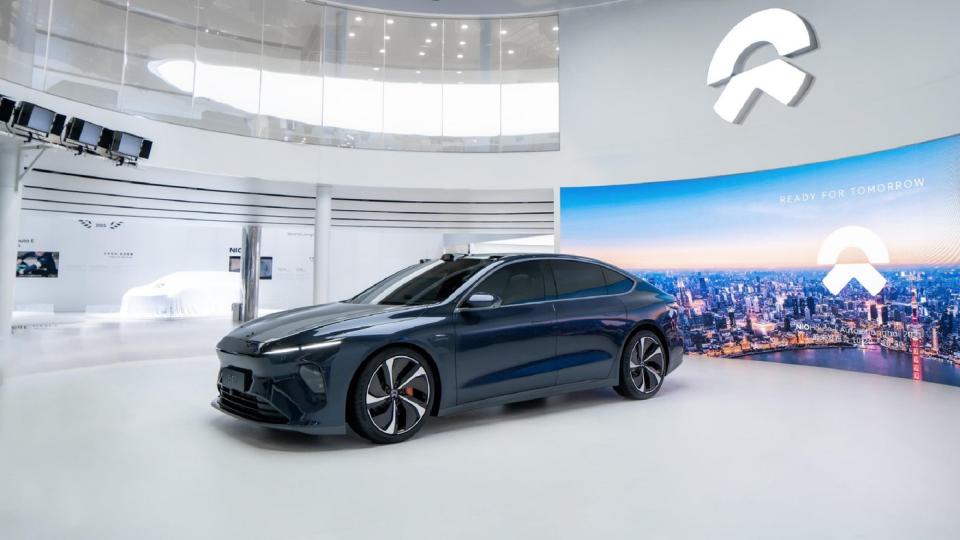When the internet started to become mainstream three decades ago, the growth arc for businesses in America and around the globe completely changed. After decades of patiently waiting, Wall Street and investors have identified what they believe is the next breakthrough innovation that’s going to alter the growth trajectory for corporate America: artificial intelligence (AI).
AI relies on software and systems to handle tasks that would normally be assigned to humans. What makes this technology so appealing is the capacity for AI software and systems to learn and evolve over time without human intervention or oversight. This effectively gives AI utility in virtually all sectors and industries.

The addressable long-term potential of artificial intelligence isn’t lost on Wall Street or its analysts. Most price targets from Wall Street pundits and financial institutions point to upside for market-leading AI stocks. But this doesn’t mean the outlook for all AI stocks is equal.
While most pundits expect the hardware kingpin of AI, Nvidia (NASDAQ: NVDA), to increase in value over the coming year, high-water price targets from select Wall Street analysts suggest two other AI stocks could more than double investor’s money in the coming 12 months and leave Nvidia in the dust.
Wall Street’s leading artificial intelligence stock may be headed for a bumpy ride
Among the more than three dozen analysts and pundits that have weighed in on Nvidia, none is more optimistic about its future than Rosenblatt’s Hans Mosesmann.
Following the completion of Nvidia’s historic 10-for-1 stock split in early June, Mosesmann increased his and his firm’s price target on the company to $200 per share from $140. This implies a valuation of nearly $5 trillion and would result in shares gaining an additional 59% from where they ended on July 5.
Mosesmann’s lofty price target is based on Nvidia retaining its dominance in two key facets of the AI revolution. The first being its monopoly like market share of AI-driven graphics processing units (GPUs). The analysts at TechInsights found that Nvidia was responsible for 3.76 million of the 3.85 million AI-GPUs that shipped were shipped in 2023. With clear-cut compute advantages and a backlog of next-generation GPU architecture waiting in the wings (Blackwell and Rubin), Mosesmann anticipates Nvidia will be the go-to hardware provider for AI-accelerated data centers.
Mosesmann also expects Nvidia to reap the rewards of its CUDA platform, which is the toolkit developers use to build large language models. This software perfectly aligns with Nvidia’s hardware monopoly to keep AI-focused businesses locked within its ecosystem of products and services.
Despite this overwhelming euphoria surrounding Nvidia, the path forward for the company should be significantly bumpier than the previous 18 months.
For example, competition is cropping up at a rapid pace. In addition to fighting back against external AI-GPU developers, all four of Nvidia’s top customers by net sales are developing AI chips for their data centers. Even if Nvidia’s chips maintain their compute advantage, the sheer presence of additional AI-GPUs will minimize the scarcity that sent the price of Nvidia’s GPUs into the stratosphere and weigh down its margins.
What’s more, history doesn’t agree with a majority of Wall Street analysts. Including the advent of the internet, every next-big-thing innovation, technology, or trend over the last 30 years has worked its way through a bubble. Since no company has more directly benefited from the rise of AI than Nvidia, it would, presumably, be the likeliest to get clobbered if and when the AI bubble bursts.
Although Nvidia’s path forward could be bumpy, a pair of Wall Street analysts believe two other AI stocks can run circles around this artificial intelligence leader over the next year.

Nio: Implied upside of 116%
The first AI stock that has the ability to leave Nvidia in the dust, at least on a return basis over the next year, is China-based electric-vehicle (EV) maker Nio (NYSE: NIO). According to Morgan Stanley analyst Tim Hsiao, Nio can reach $10 per share, which would represent an increase of 116% from where shares ended on July 5.
One of the catalysts fueling Hsiao’s optimism is Nio’s rapid growth in production and deliveries. In particular, Nio has been averaging around 5,000 orders per week, or in the neighborhood of 20,000 deliveries per month. Moving past the worst of the COVID-19 pandemic, which led to stringent lockdowns in China, has unraveled the supply chain kinks that had previously held back Nio’s production expansion.
To add to this point, Nio has completed the transition of its fleet to its new NT 2.0 platform. This new platform incorporates a number of advanced driver assistance system upgrades, including autonomous driving capabilities, which is one aspect of Nio’s AI ties. Since transitioning to NT 2.0, demand for Nio’s EVs has picked up.
Hsiao and his team are also excited about the 2024 launch of Nio’s second vehicle brand, known as Onvo. Whereas Nio has predominantly focused on higher-earning consumers with its existing lineup, Onvo is a family oriented battery-EV brand with a lower price point that can be a more direct competitor to the likes of Tesla in China.
The final piece of the puzzle is that it’s swimming in capital. The company closed out the March quarter with approximately $6.3 billion in cash, cash equivalents, and various investments. This gives Nio ample runway to introduce new EVs and ramp up production.
The caveat to all of the above is that building a car company from the ground up is no easy task. Nio is still burning cash and not particularly close to generating a profit. While Onvo and its battery-as-a-service subscription might be able to lift margins, Nio remains a work-in-progress that’ll require patience from its shareholders.
Baidu: Implied upside of 102%
The second artificial intelligence stock expected to more than double investor’s money and leave Nvidia eating its dust is yet another China-based company, Baidu (NASDAQ: BIDU). According to analyst Fawne Jiang of Benchmark, Baidu has a path to $180 per share — a 102% gain from its closing price on July 5 — over the next 12 months.
Baidu is best-known for its market-leading internet search engine. Based on data from GlobalStats, the company’s search engine accounted for about a 53% share of internet search in the world’s No. 2 economy by gross domestic product in June. With few exceptions, Baidu has controlled a 50% to 85% monthly share of internet search in China dating back 10 years.
As the go-to internet search engine in China, it’s often able to command substantial ad-pricing power from businesses. Although China’s bounce-back from the COVID-19 pandemic has been filled with more potholes than initially anticipated, it’s tough to envision Baidu struggling for long when it retains a clear moat in advertising.
However, it’s Baidu’s ancillary AI operations that could be its biggest growth driver for the remainder of the decade (if not well beyond). Baidu’s AI Cloud is the fourth-largest cloud infrastructure service platform in China, based on total spending. Enterprise spending on cloud services is in its early stages of ramping up, and cloud-service margins provide far more pop for Baidu than advertising margins.
Additionally, Baidu is the parent of Apollo Go, the world’s leading autonomous ride-hailing service. As of April 19, Apollo Go had surpassed 6 million cumulative rides since its inception.
Similar to Nio, Baidu is also sitting on quite the treasure chest of available capital. It ended the first quarter with around $26 billion in cash, cash equivalents, and various investments at its disposal. Given Baidu’s forward price-to-earnings ratio of just 7.5, the risk-versus-reward profile for the company would certainly favor upside.
Should you invest $1,000 in Nvidia right now?
Before you buy stock in Nvidia, consider this:
The Motley Fool Stock Advisor analyst team just identified what they believe are the 10 best stocks for investors to buy now… and Nvidia wasn’t one of them. The 10 stocks that made the cut could produce monster returns in the coming years.
Consider when Nvidia made this list on April 15, 2005… if you invested $1,000 at the time of our recommendation, you’d have $805,042!*
Stock Advisor provides investors with an easy-to-follow blueprint for success, including guidance on building a portfolio, regular updates from analysts, and two new stock picks each month. The Stock Advisor service has more than quadrupled the return of S&P 500 since 2002*.
*Stock Advisor returns as of July 8, 2024
Sean Williams has positions in Baidu. The Motley Fool has positions in and recommends Baidu, Nvidia, and Tesla. The Motley Fool has a disclosure policy.
Forget Nvidia: These 2 Artificial Intelligence (AI) Stocks Are Expected to More Than Double Investor’s Money, According to Select Wall Street Analysts was originally published by The Motley Fool
EMEA Tribune is not involved in this news article, it is taken from our partners and or from the News Agencies. Copyright and Credit go to the News Agencies, email news@emeatribune.com Follow our WhatsApp verified Channel





